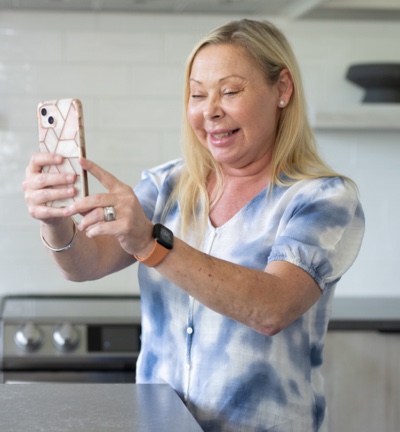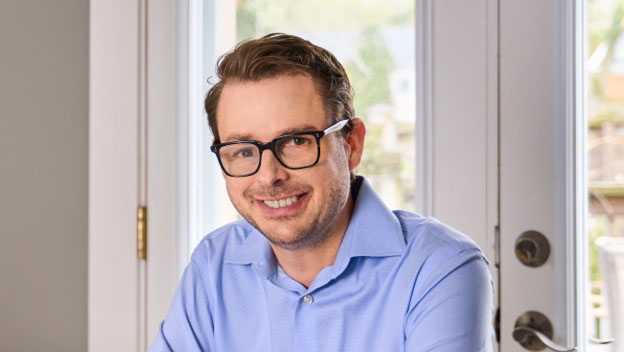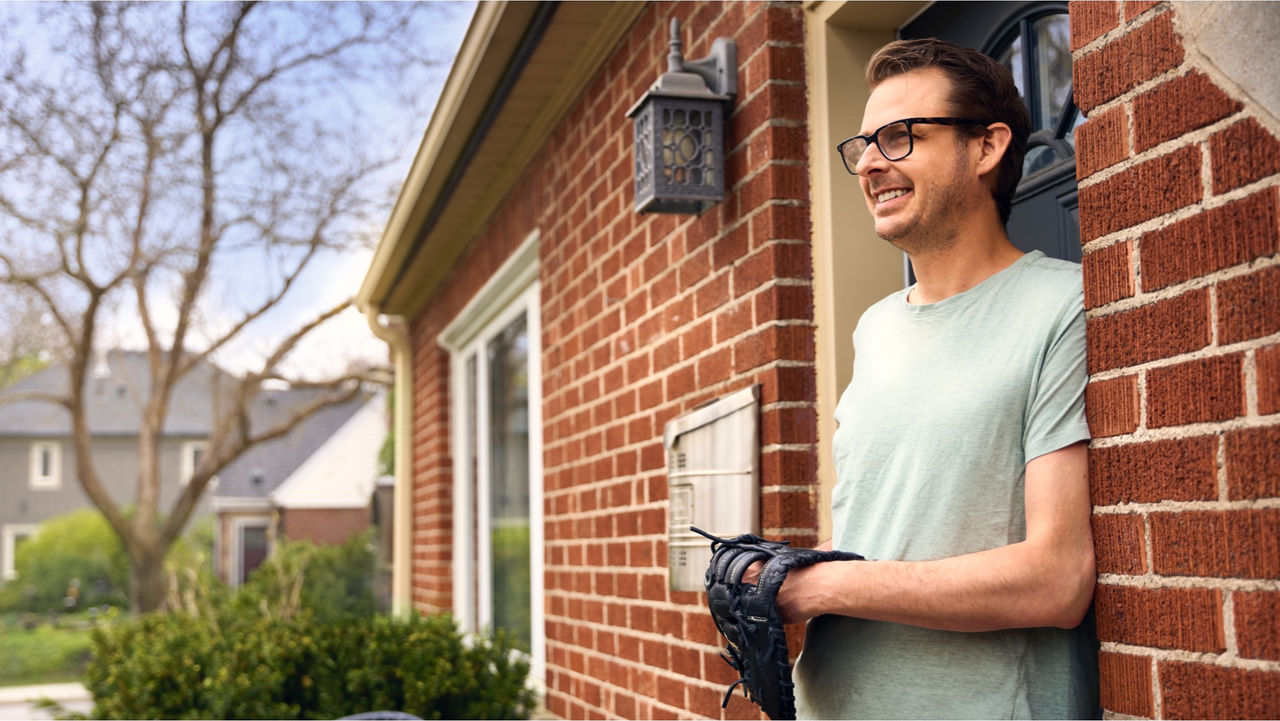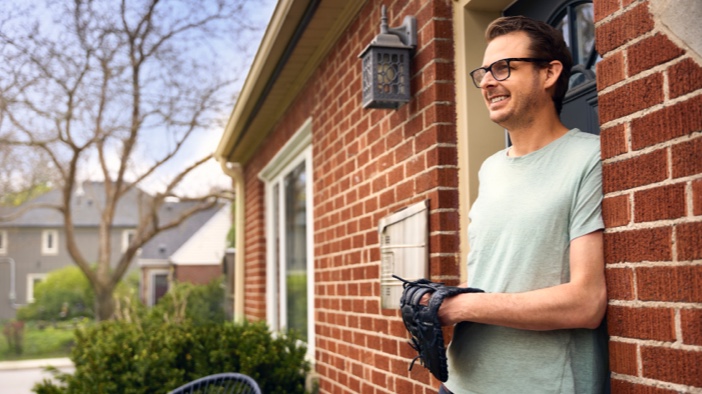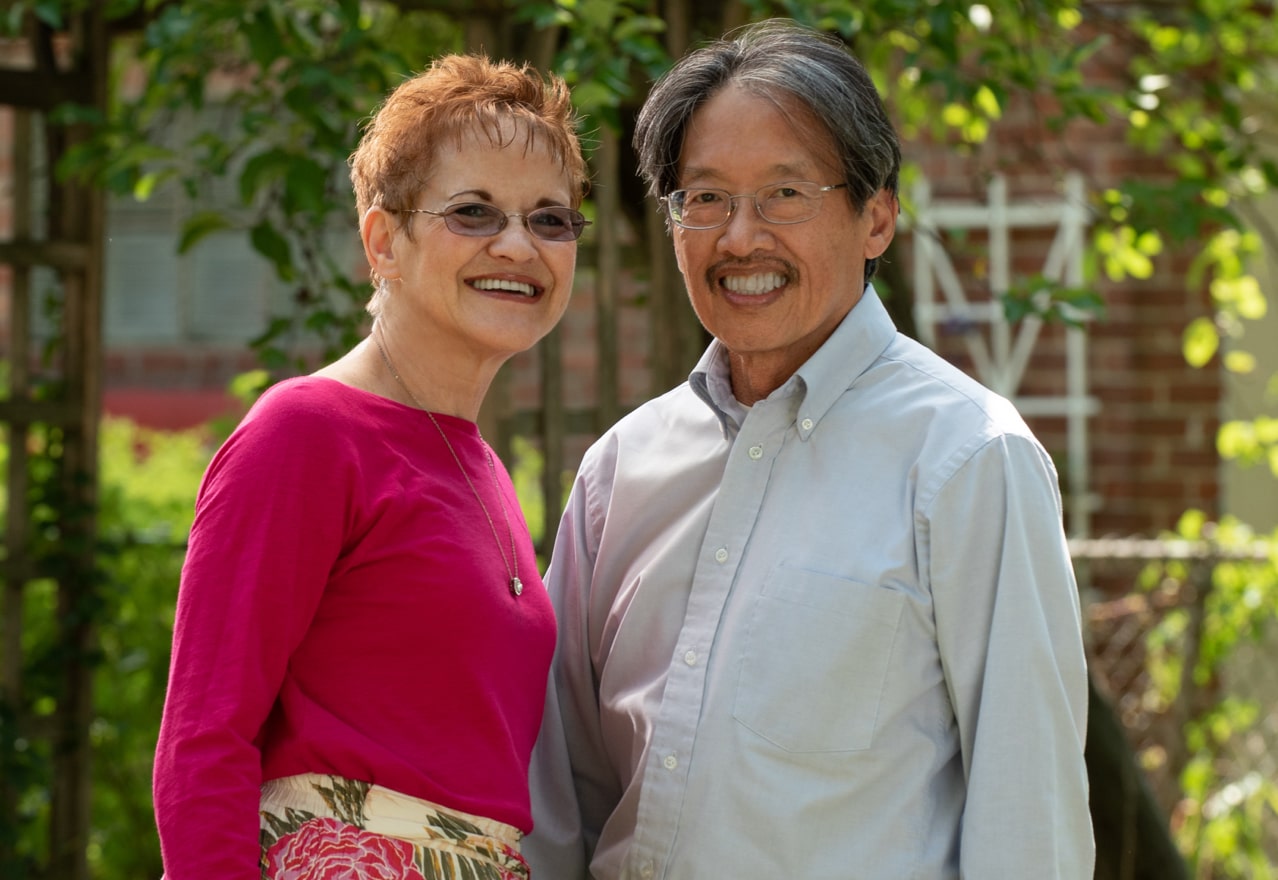For Adam, sports have always been a big part of his life. An average weekend used to include playing baseball and touch football with close friends, some of whom he’s known for 20 years. While those friendships haven’t changed, his involvement in the games has. The game-changing factor? MG.
However, it wasn’t at a sporting event where Adam first noticed MG symptoms; it was during outings with friends. Particularly at night, Adam started to experience problems with double vision. He also noticed he had trouble physically pulling together a smile or using a straw. “I thought maybe I got a sunburn,” he explained, referencing the trouble smiling in particular. “I didn’t think anything was wrong.”
When the double vision stayed pretty persistent, Adam consulted an optometrist about it, thinking it was just an eye issue. That optometrist ultimately referred him to a neuro-ophthalmologist, who quickly suspected MG as the source of the problem. Finally, Adam was referred to a neurologist who confirmed the MG diagnosis.
“I had never heard of it. I was like, ‘Am I going to die?’” Adam reflected. “When it’s a disease you’ve never heard of, you just don’t know the severity of it.”
But after going home and doing some research on it—and after letting the diagnosis sink in—Adam eventually felt better just knowing what it was and having clarity. “I knew I could deal with it, and I knew it could be treated, so I could move forward,” he concluded.
Adam has taken that attitude to heart as he’s gone through his MG journey, noting that he’s “a super positive person” and wants to keep it that way. When it comes to managing MG in his daily routine, his ability to work from home for his medical communications job has helped ease the adjustment, as has his tight-knit support system. “My support system is a plus. I have a very good one,” he noted, speaking of his wife and daughter at home, and his mother and sister who live in his neighborhood.
It’s about knowing your body, knowing your symptoms and managing them to maximize what you can enjoy.
While working from home has helped him save energy, he’s still had to be mindful of other symptoms—like strained eyes from staring at the computer screen or difficulty talking after long calls—but has identified ways to manage them.
“I have to know my limits and work within those. In the past, if my mouth was bad, I knew I could only talk for about a half hour before it got difficult, so I needed to manage client calls around that. Or knowing that my eyes were going to get tired, I might lay down for a bit to prolong my day,” Adam explained. “For me, it’s about knowing your body, knowing your symptoms and managing them to maximize what you can enjoy.”
Outside of the workday, a go-to MG management tactic for Adam is putting tape over one of his glasses lenses to help combat double vision. He admitted he feels self-conscious when doing this in public settings, but has gotten used to it. “Explaining it to people can be a little bit challenging. It’s a challenge for them to understand,” he shared.
I never let MG define me. Don’t let it define you. Be you.
And, throughout all of this, trying different treatments and traveling to appointments to get them has been a key part of Adam’s MG management. He found a doctor he loved working with, but who was an hour-and-a-half drive away, making healthcare access a bit of a time-consuming process. While that came with difficult trade-offs, like missing time with family and taking significant time off of work, Adam found the hours spent driving back and forth well worth it, as he felt highly supported by his doctor and nurse practitioner.
“I never let MG define me. I just never dwelled on it,” he expressed. “Don’t let it define you. Be you.”
Adam’s average weekend now may not involve the same level of sports it once did, but sports are not out of the picture! While football may not be practical for him anymore, Adam has been able to get into softball and curling. When he’s not playing one of those, he’s still spending time with family and friends, doing yard work or taking his English bulldog for a walk. Travel’s not off the table either: He hopes to fulfill his daughter’s dream of seeing a koala bear in Australia one day.
